Attending were: members of the Committee on Law and Justice; representatives of the Ministry of Home Affairs and a number of relevant ministries and branches.
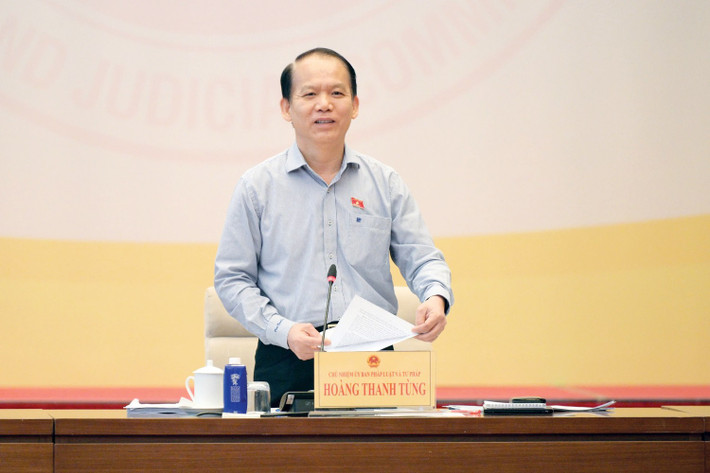
According to the Draft Law on Organization of Local Government (amended), the draft Law consists of 7 chapters and 54 articles; fundamentally amends the regulations on organization and operation of local governments to fully institutionalize the policies and orientations in the Party's Documents, Resolutions, Conclusions of the Politburo , Secretariat and concretize the provisions of the 2013 Constitution (after amendments and supplements) to convert the local government organization model from the current 3 levels (including: provincial level, district level and commune level) to 2 levels (including: provincial level and commune level), ensuring a streamlined, efficient, effective, and efficient apparatus and the unity and consistency of the state administration from the central to commune level.
The draft Law focuses on amending and supplementing regulations on four groups of issues: the organization of administrative units and the two-level local government organization model; promoting decentralization, delegation of power and clearly defining the tasks and powers of provincial and communal local governments; organizing the apparatus of local governments; and resolving issues arising from the conversion of the local government organization model from three levels to two levels.
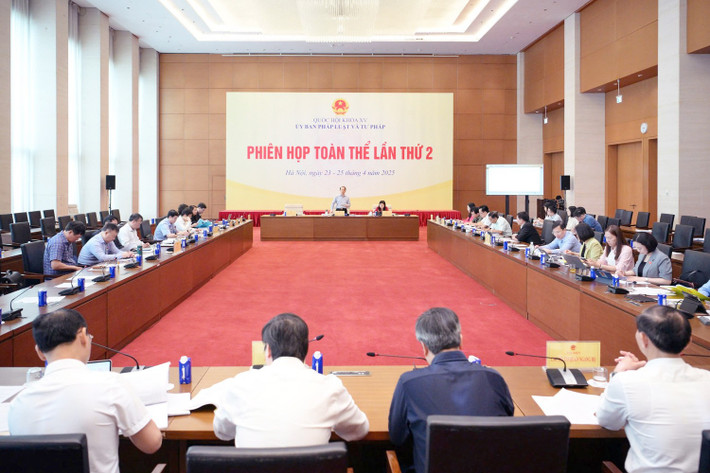
The opinions of the Committee on Law and Justice agreed on the comprehensive amendment of the current Law on Organization of Local Government; basically agreed with the adjustment of tasks and powers of local governments at provincial and communal levels when not organized at district level in the draft Law.
In addition, the delegates suggested that it is necessary to clarify the basis for proposing the number of provincial and commune-level People's Council delegates as in the draft Law, because if the regulation stipulates that the commune-level People's Council has a maximum of 35 delegates (equivalent to the maximum number of delegates of the district-level People's Council according to the current Law), it is not really reasonable. Moreover, the proposal of the number of People's Council delegates also needs to ensure the correlation between administrative units implementing the arrangement and administrative units not implementing the arrangement.

There are opinions suggesting not to stipulate that the People's Committee at the commune level can decentralize to specialized agencies and other administrative organizations under the People's Committee at its level as in Clause 1, Article 13 because the commune-level government is the level closest to the people, so the People's Committee at the commune level needs to directly implement and be responsible for the implementation of assigned tasks and powers. The assignment of specialized agencies and civil servants at the commune level to perform the tasks and powers of the People's Committee at the commune level is actually an internal matter and should not be considered a form of decentralization.
The draft Law on Cadres and Civil Servants (amended) clearly states that the promulgation of the law aims to implement the Party's policies and requirements on reorganizing the apparatus of the political system; innovating the mechanism for recruiting, using and managing cadres and civil servants; streamlining the payroll, restructuring and improving the quality of the team, meeting the requirements of national development in the new period.

The draft Law consists of 7 chapters and 52 articles, 35 articles less than the current law. In particular, the concept of cadres and civil servants is amended and supplemented to add commune-level cadres and civil servants to replace district-level cadres and civil servants. At the same time, Clause 3, Article 4; Chapter V on commune-level cadres and civil servants; the authority to manage civil servants of the district-level People's Committee in Clause 2, Article 67 of the current Law is removed.
The draft Law also amends, supplements and clarifies a number of contents related to the mechanism of management, arrangement and use of civil servants; innovates the recruitment method according to job position; amends and supplements the regulations on regular assessment during the year based on the results of implementation of each assigned task and job. Perfects the mechanism and policies to attract and promote talented people in public service activities; the mechanism to exclude, exempt or reduce the responsibility of cadres and civil servants who make proposals for innovation and creativity in accordance with policies, with pure motives, for the common good.
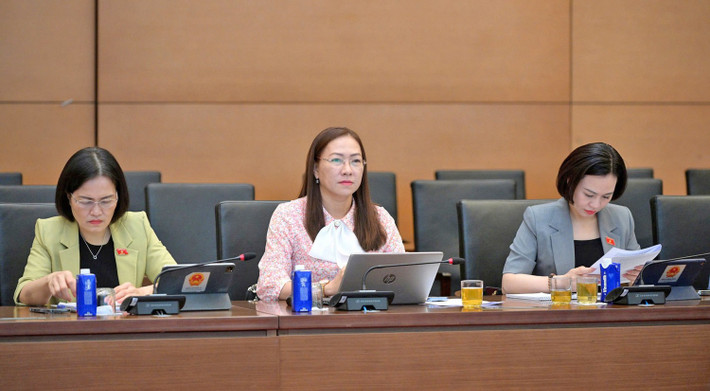
Commenting on the draft Law, members of the Law and Justice Committee agreed to amend the regulations to link communal and provincial officials and civil servants, unify the civil service regime from the central to communal levels, and attract talented people to work in state agencies. However, some opinions suggested that the draft Law should clarify the meaning of “talented people”.
Delegates also proposed to study and supplement regulations on evaluating cadres and civil servants to overcome limitations in the work of evaluating cadres and civil servants in recent times; review regulations on classifying, evaluating and disciplining cadres and civil servants to ensure appropriateness and fairness.
Source: https://daibieunhandan.vn/tham-tra-du-an-luat-to-chuc-chinh-quyen-dia-phuong-sua-doi-va-du-an-luat-can-bo-cong-chuc-sua-doi-post411410.html


![[Photo] General Secretary To Lam attends the conference to review 10 years of implementing Directive No. 05 of the Politburo and evaluate the results of implementing Regulation No. 09 of the Central Public Security Party Committee.](https://vphoto.vietnam.vn/thumb/1200x675/vietnam/resource/IMAGE/2025/5/19/2f44458c655a4403acd7929dbbfa5039)

![[Photo] President Luong Cuong presents the 40-year Party membership badge to Chief of the Office of the President Le Khanh Hai](https://vphoto.vietnam.vn/thumb/1200x675/vietnam/resource/IMAGE/2025/5/19/a22bc55dd7bf4a2ab7e3958d32282c15)
![[Photo] Panorama of the Opening Ceremony of the 43rd Nhan Dan Newspaper National Table Tennis Championship](https://vphoto.vietnam.vn/thumb/1200x675/vietnam/resource/IMAGE/2025/5/19/5e22950340b941309280448198bcf1d9)
![[Photo] Close-up of Tang Long Bridge, Thu Duc City after repairing rutting](https://vphoto.vietnam.vn/thumb/1200x675/vietnam/resource/IMAGE/2025/5/19/086736d9d11f43198f5bd8d78df9bd41)




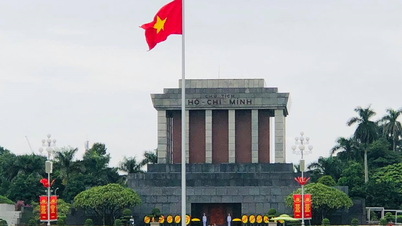

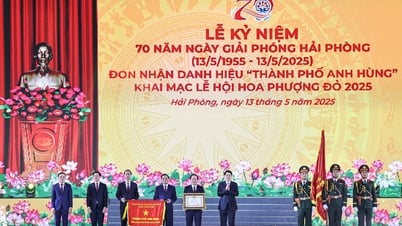





























































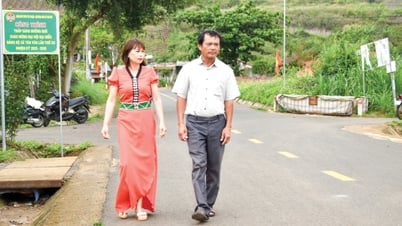


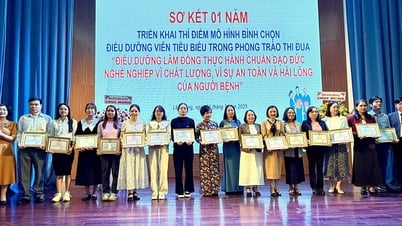
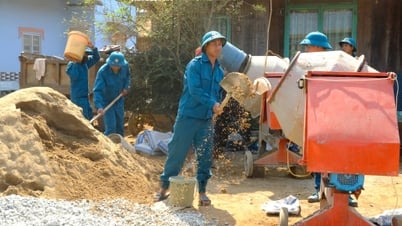








![[VIDEO] - Enhancing the value of Quang Nam OCOP products through trade connections](https://vphoto.vietnam.vn/thumb/402x226/vietnam/resource/IMAGE/2025/5/17/5be5b5fff1f14914986fad159097a677)


Comment (0)